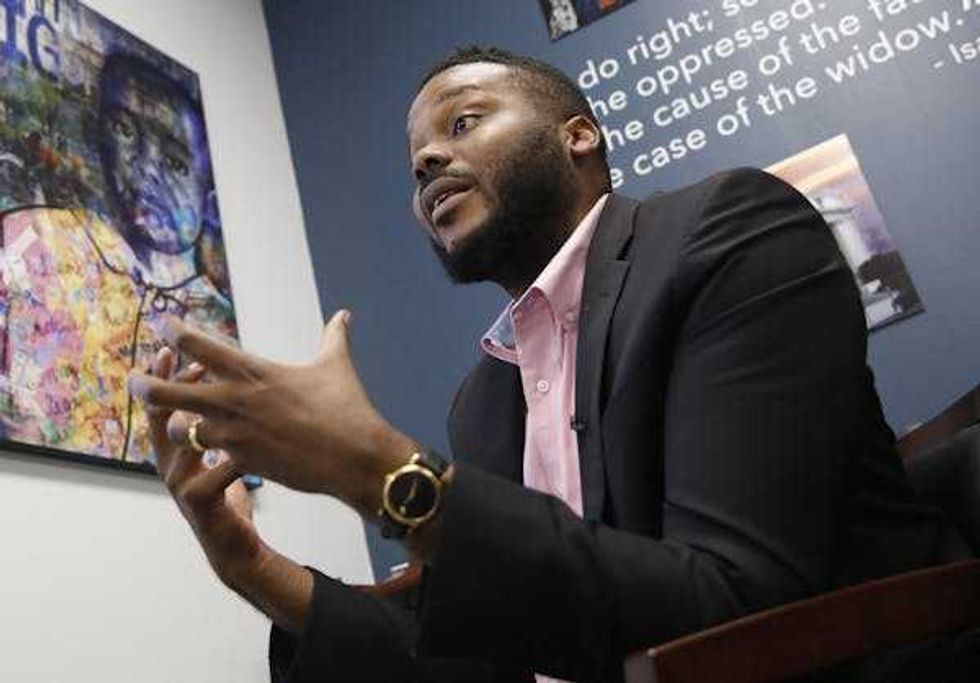A summer job bagging groceries at the local supermarket or flipping burgers at a fast food joint used to be rite of passage for teenagers. For some students, the cash they earned would go toward buying clothes or tickets to a blockbuster at the multiplex. Others would deposit their paychecks into a college savings account, putting funds aside for when they’d need to buy books and supplies on campus.
[quote position="left" is_quote="true"]Colleges don’t over-value experiences that can only be bought.[/quote]
Nowadays, however, fewer teens are working summer jobs, and the trend of adults being hired for the minimum-wage jobs youth used to get isn’t necessarily to blame. With the growing awareness of how critical education is to economic prosperity, it turns out that many teens are spending their summers on activities they think will give them an edge in the college admissions game.
In a report released in February, the Bureau of Labor Statistics found that the teen labor force participation rate in July 2016 was 43.2%, down sharply from 71.8% in July 1978. But the BLS found that 42.1% of teens were enrolled in summer school in July 2016 compared to only 10.4% in 1985.
But should a student who works during the summer feel stressed that they aren’t taking physics or calculus during the summer? And should a student who enrolls in summer school worry that they’re not saving up money for higher education — or that it looks bad to the people reading their college application that they didn’t have a job? As a former admissions counselor, I can say that either option, or something in between, can look great on a college-bound high-school resume.
Here are the pros and cons of both options — and what to keep in mind about either choice.
Taking summer school classes
Pros: Summer can be used to complete required courses more efficiently, either to check off a state requirement or to move into a higher-level course the next school year. Classes can help fight brain drain and allow students to take a course they otherwise wouldn’t have time for during the school year, like an elective science course or art class. This can be a great option if higher-level courses are determining the flexibility of a student’s regular course schedule.
Cons: A student may need to pay a small fee to enroll in their high school’s summer courses. They might also need to cover lab fees or pay for breakfast or lunch. A 16-week course squished into six to eight weeks also often means students are responsible for learning material at home on top of traditional homework. More time spent on homework means less time for other activities, from helping out with cooking dinner to hanging out with friends. Students must create a homework-life balance so that they are not burned out by the time the regular school year starts again.
Something to consider: If college credit is a goal, be sure to read the fine print. Taking a required economics course over the summer might free up a student’s schedule for advanced placement literature, but this doesn’t guarantee the college or university they eventually enroll in will take those summer credits. Every university is different in what courses they accept, what AP or International Baccalaureate scores count as credit, and whether receiving credit means they no longer have to take a basic requirement like English 101 as a first-year student. Sometimes, AP and IB courses are only counted as college elective credit, meaning a student will still need to take that 100-level required course.
Working during the summer
Pros: A summer job can help teenagers practice problem-solving, learn how to work with people of all ages and backgrounds, and consider what they want their work “persona” to be. Students can gain technical or manual skills that they might use post-college. Time spent waiting tables, for example, could help bring much-needed perspective to building an app for an audience of restaurant workers.
[quote position="left" is_quote="true"]A summer job can help teenagers practice problem-solving.[/quote]
Cons: A student may be putting part of their paycheck back into their gas tank or toward a bus pass if they have to commute to work. Calculate any upfront or ongoing costs such as car mileage, purchasing a uniform, investing in orthopedic shoes, etc., and plan accordingly. With any hourly job, there is also the possibility of experiencing unsafe environments, unreasonable bosses, or inappropriate behavior. Students should become knowledgeable about their employment rights within their state and set moral and self-care boundaries accordingly, even if this means quitting the job.
Something to consider: Seasonal or temp work can pay well but be physically draining. Students should consider what else they want, or need, to accomplish over the summer. For example, if a teen is counting on using the break to teach themselves a new coding language, a job that allows studying during downtime would be the best fit.
Be honest about the tradeoffs
Whatever a teen decides, they should be as honest as possible about benefits and sacrifices of their choice. For some, it might make the most sense to create a split situation: work the first half of the summer and take a course during the second half. Or enroll in courses one summer and plan to work through the next. It is key for students to be able to evaluate what is going to work best for their situation regardless of the choices their peers make.
It also helps to remember that in college admissions, counselors are trained not to penalize students whose family situations may require them to work. Counselors also don’t over-value summer experiences that can only be bought at a high price. Whether taking classes, working, or a mix of the two, what is most important is that students engage wholeheartedly in their choice and pursue any opportunities that stem from those choices with an open mind.
















 Creativity and innovation are both likely to become increasingly important for young people entering the workplace, especially as AI continues to grow.
Creativity and innovation are both likely to become increasingly important for young people entering the workplace, especially as AI continues to grow.

 Peru stingless bee.USGS Bee Inventory and Monitoring Lab/
Peru stingless bee.USGS Bee Inventory and Monitoring Lab/  Indigenous Peruvian people.Photo credit
Indigenous Peruvian people.Photo credit 
 As mayor of Stockton, Calif., Michael Tubbs ran a pioneering program that provided a basic income to a limited number of residents.
As mayor of Stockton, Calif., Michael Tubbs ran a pioneering program that provided a basic income to a limited number of residents. Martin Luther King Jr. believed Americans of different racial backgrounds could coalesce around shared economic interests.
Martin Luther King Jr. believed Americans of different racial backgrounds could coalesce around shared economic interests.
 A anxiety-free man embracing the dayCanva
A anxiety-free man embracing the dayCanva Two friends embrace each other while laughingCanva
Two friends embrace each other while laughingCanva A woman takes a relaxing bubble bathCanva
A woman takes a relaxing bubble bathCanva
 Confident young womanCanva
Confident young womanCanva
 Women and people of color who experience cardiac arrest are less likely to receive CPR.
Women and people of color who experience cardiac arrest are less likely to receive CPR.
 Self reflection.Photo credit
Self reflection.Photo credit  Older woman touching hands with a younger self.Photo credit
Older woman touching hands with a younger self.Photo credit  Sign reads, "Regrets Behind You."Photo credit
Sign reads, "Regrets Behind You."Photo credit